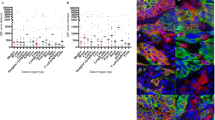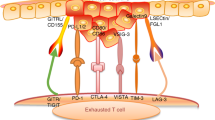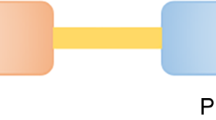Abstract
For the presentation of peptide antigens to cytotoxic CD8+ T lymphocytes of the immune system, the expression of human leukocyte antigen (HLA) class I molecules on the cell surface is necessary. There is increasing evidence that surface HLA class I antigen expression is altered in a variety of human tumours by either loss or down-regulation of these molecules, which may be a strategy for evasion of immunosurveillance by malignant cells. This study has examined the expression of HLA class I molecules in head and neck squamous cell carcinoma (HNSCC) specimens by immunohistochemistry, using a wide panel of antibodies directed against allele-specific as well as monomorphic determinants of these molecules. The expression of TAP proteins, HLA-DR and the co-stimulatory molecule ICAM-1 were also studied. In addition, the expression of the tumour-associated antigens (TAA) p53 and MAGE genes was determined. Aberrant allelic expression of HLA class I antigens was detected in 17 out of 34 (50%) of the specimens stained, whereas HLA class I expression determined by W6/32 staining was found to be heterogeneous in only 2 out of 34 (6%) cases. Decreased expression of ICAM-1 was observed in 12 out of 34 (35%) tumour specimens and de novo expression of HLA-DR (HLA class II) by carcinoma cells in 13 out of 34 (38%) cases. Aberrant expression of HLA class I antigens was frequently observed in cases in which MAGE genes and p53 overexpression were detected. The altered expression of these immunomodulatory molecules in HNSCC may affect prognosis and has important implications for peptide-based immunotherapy strategies for these patients.
This is a preview of subscription content, access via your institution
Access options
Subscribe to this journal
Receive 24 print issues and online access
$259.00 per year
only $10.79 per issue
Buy this article
- Purchase on Springer Link
- Instant access to full article PDF
Prices may be subject to local taxes which are calculated during checkout
Similar content being viewed by others
Author information
Authors and Affiliations
Rights and permissions
About this article
Cite this article
Vora, A., Rodgers, S., Parker, A. et al. An immunohistochemical study of altered immunomodulatory molecule expression in head and neck squamous cell carcinoma. Br J Cancer 76, 836–844 (1997). https://doi.org/10.1038/bjc.1997.472
Issue Date:
DOI: https://doi.org/10.1038/bjc.1997.472
This article is cited by
-
Downregulation of HLA Class I molecules in the tumour is associated with a poor prognosis in patients with oesophageal squamous cell carcinoma
British Journal of Cancer (2008)
-
Plattenepithelkarzinome des Kopf-Hals-Bereichs
HNO (2005)
-
Targeting the immune system: novel therapeutic approaches in squamous cell carcinoma of the head and neck
Cancer Immunology, Immunotherapy (2004)
-
Targeted therapy of solid malignancies via HLA class II antigens: a new biotherapeutic approach?
Oncogene (2003)
-
Prognostic impact of in vivo soluble cell adhesion molecules in metastatic renal cell carcinoma
British Journal of Cancer (1999)



